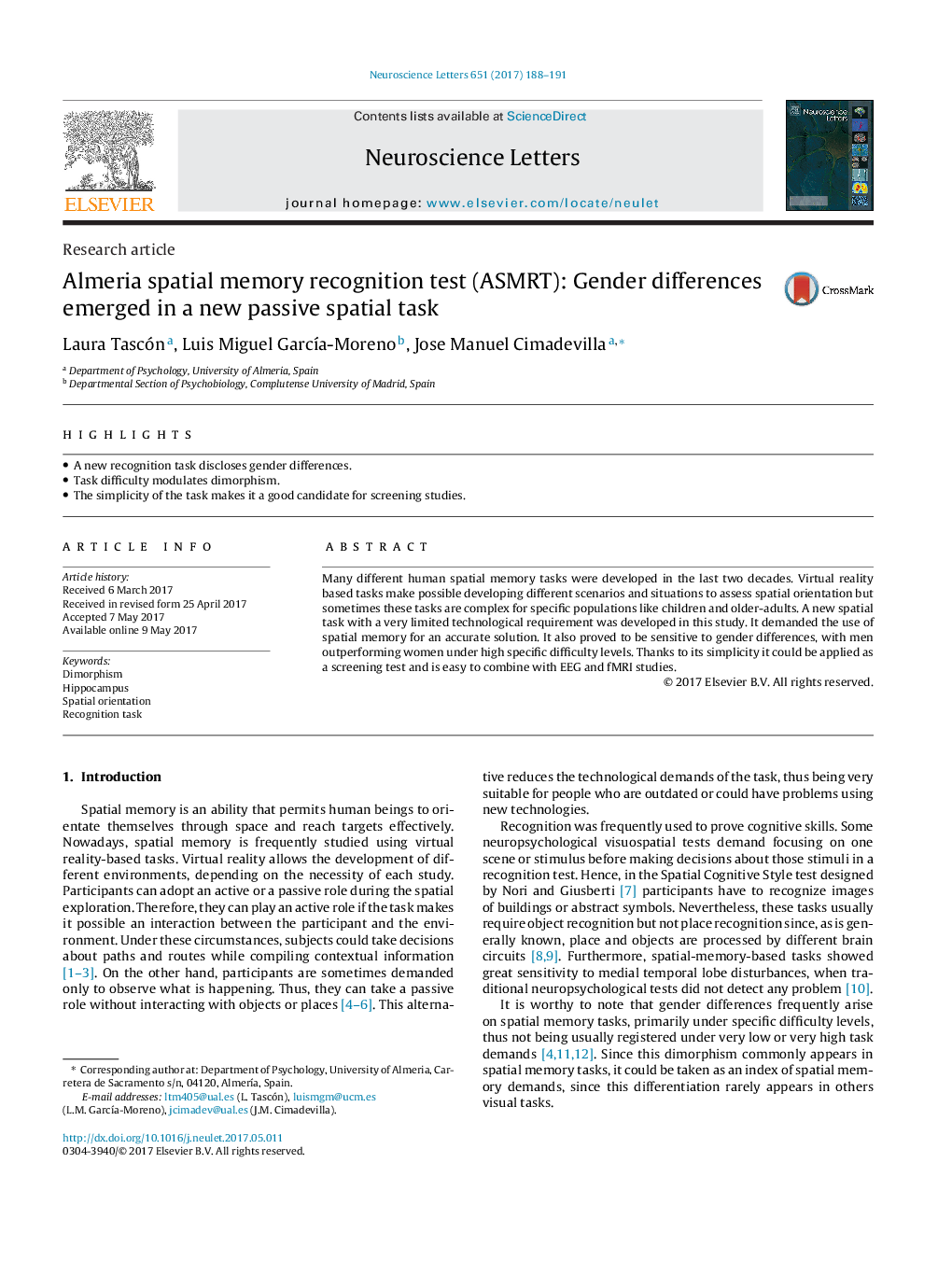| Article ID | Journal | Published Year | Pages | File Type |
|---|---|---|---|---|
| 5738219 | Neuroscience Letters | 2017 | 4 Pages |
Abstract
Many different human spatial memory tasks were developed in the last two decades. Virtual reality based tasks make possible developing different scenarios and situations to assess spatial orientation but sometimes these tasks are complex for specific populations like children and older-adults. A new spatial task with a very limited technological requirement was developed in this study. It demanded the use of spatial memory for an accurate solution. It also proved to be sensitive to gender differences, with men outperforming women under high specific difficulty levels. Thanks to its simplicity it could be applied as a screening test and is easy to combine with EEG and fMRI studies.
Related Topics
Life Sciences
Neuroscience
Neuroscience (General)
Authors
Laura Tascón, Luis Miguel GarcÃa-Moreno, Jose Manuel Cimadevilla,
